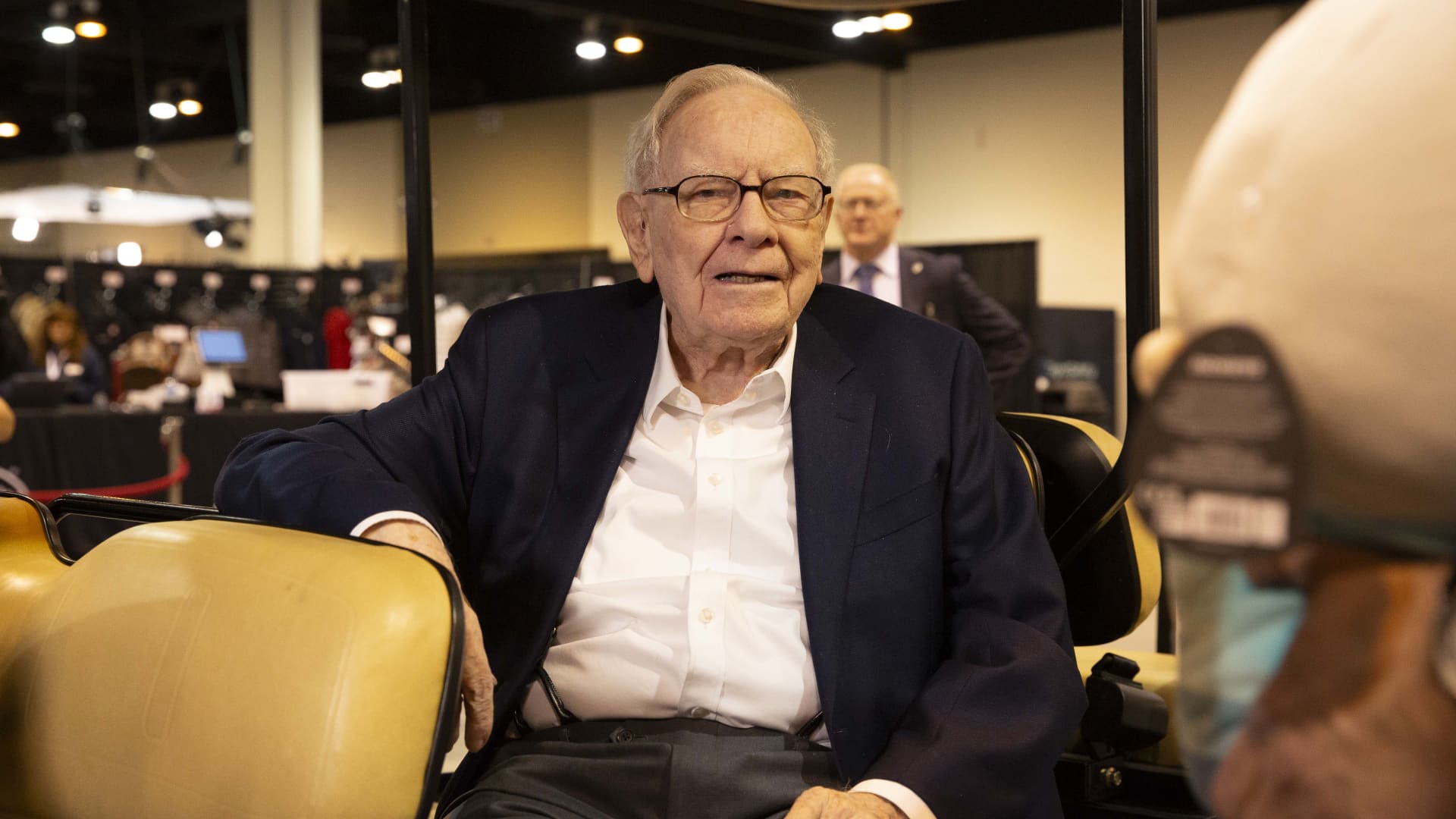Berkshire Hathaway’s First-Quarter Performance: A Deep Dive
In the first quarter of 2025, Berkshire Hathaway, led by the legendary investor Warren Buffett, faced a notable decline in operating earnings, while simultaneously amassing a record-high cash reserve. This report examines the specifics of these financial results, the underlying factors, and the broader implications for the company and its investors.
A Steep Drop in Operating Earnings
Berkshire Hathaway’s operating earnings for the first quarter of 2025 saw a significant decline of 14.1% year-over-year. This translates to operating profits of $9.6 billion, a figure that highlights the challenges faced by the conglomerate’s diverse businesses. The decline is even more striking when compared to the previous quarter’s performance, where operating earnings surged by over 70% year-over-year.
Several factors contributed to this earnings drop. Key sectors such as insurance and transportation reported weaker results. Berkshire Hathaway’s insurance operations, typically a stronghold, experienced a $1.3 billion decrease in net underwriting earnings. This decline underscores the volatility and uncertainty that have gripped the insurance market, directly impacting Berkshire’s financial performance.
The Role of Economic Factors
Economic factors played a significant role in Berkshire Hathaway’s first-quarter performance. The global economy in 2025 was marked by uncertainty, with fluctuating interest rates, geopolitical tensions, and shifting consumer behavior. These factors collectively created a challenging environment for Berkshire’s diverse portfolio of businesses.
The transportation sector, another critical component of Berkshire’s operations, also faced headwinds. Changes in consumer spending patterns and supply chain disruptions led to reduced demand for transportation services, further contributing to the decline in operating earnings. The interplay of these economic factors highlights the delicate balance Berkshire must maintain to sustain growth across its various business segments.
Record Cash Reserves: A Double-Edged Sword
Concurrently, Berkshire Hathaway’s cash reserves reached an unprecedented high of over $347 billion. This substantial cash pile, up from around $334 billion at the end of 2024, reflects Buffett’s cautious approach to investment in the face of economic uncertainty. The record cash reserve is a testament to Berkshire’s financial strength but also indicates a reluctance to deploy capital in an uncertain market environment.
The accumulation of cash is not without its challenges. While it provides a buffer against market volatility and potential downturns, it also represents missed opportunities for growth through strategic investments. Buffett’s struggle to find attractive investment opportunities underscores the broader market conditions, where valuations and economic policies have created a landscape of uncertainty.
Tariff Uncertainty and Its Impact
One of the significant headwinds facing Berkshire Hathaway is the uncertainty surrounding tariffs. Warren Buffett has been vocal about his concerns, describing tariffs as “an act of war” and a tax on goods. The potential impact of tariffs on Berkshire’s profits is substantial, with companies like General Motors (GM) lowering their 2025 guidance due to tariff exposure.
Berkshire Hathaway’s vast array of businesses, spanning insurance, transportation, energy, and retail, are all susceptible to the ripple effects of tariffs. The uncertainty has led to a more cautious approach to investment and expansion, further contributing to the decline in operating earnings.
Strategic Moves and Market Outlook
Despite the challenges, Berkshire Hathaway has made strategic moves to mitigate risks and capitalize on opportunities. For instance, the company has been buying stock in the video game company Activision, demonstrating Buffett’s long-term vision and willingness to invest in high-growth sectors. Additionally, Berkshire’s insurance businesses have shown resilience, offsetting underwriting losses and contributing to overall stability.
Buffett’s annual letter to shareholders provides insights into the company’s financial achievements and strategic decisions. In 2024, Berkshire reported record operating earnings of $47.44 billion, a 27% increase from the previous year. This performance, achieved despite challenges, highlights the company’s ability to navigate turbulent waters and emerge stronger.
The Path Forward
Looking ahead, Berkshire Hathaway’s strategy will likely focus on leveraging its financial strength to capitalize on opportunities that arise from market volatility. The company’s diverse portfolio provides a natural hedge against sector-specific risks, allowing it to weather economic storms more effectively than many of its peers.
Buffett’s leadership and the company’s long-term perspective will be crucial in navigating the current uncertainties. Berkshire’s history of prudent investment and strategic acquisitions positions it well to take advantage of market dislocations and emerging trends. The company’s focus on value investing and its robust cash reserves will be key assets in this endeavor.
Conclusion: Navigating Uncertain Times
In conclusion, Berkshire Hathaway’s first-quarter performance reflects the challenges and opportunities in the current economic landscape. The decline in operating earnings, coupled with a record cash reserve, underscores the need for cautious optimism. As Warren Buffett prepares to address shareholders at the annual meeting, the focus will be on navigating economic uncertainties and capitalizing on strategic opportunities. The company’s resilience and Buffett’s leadership will be crucial in steering Berkshire Hathaway through these uncertain times and positioning it for future growth. The legacy of Berkshire Hathaway is built on adaptability and foresight, qualities that will be essential in the years to come.

